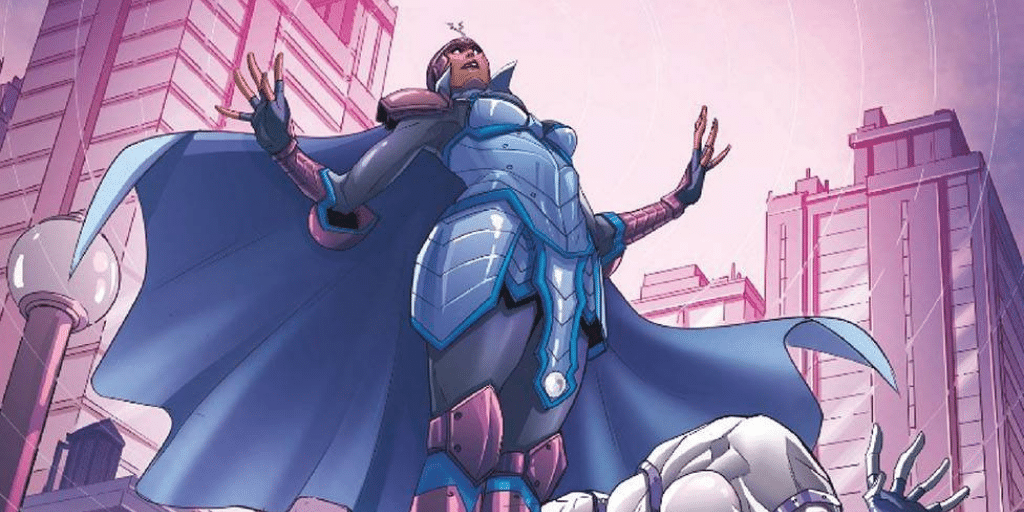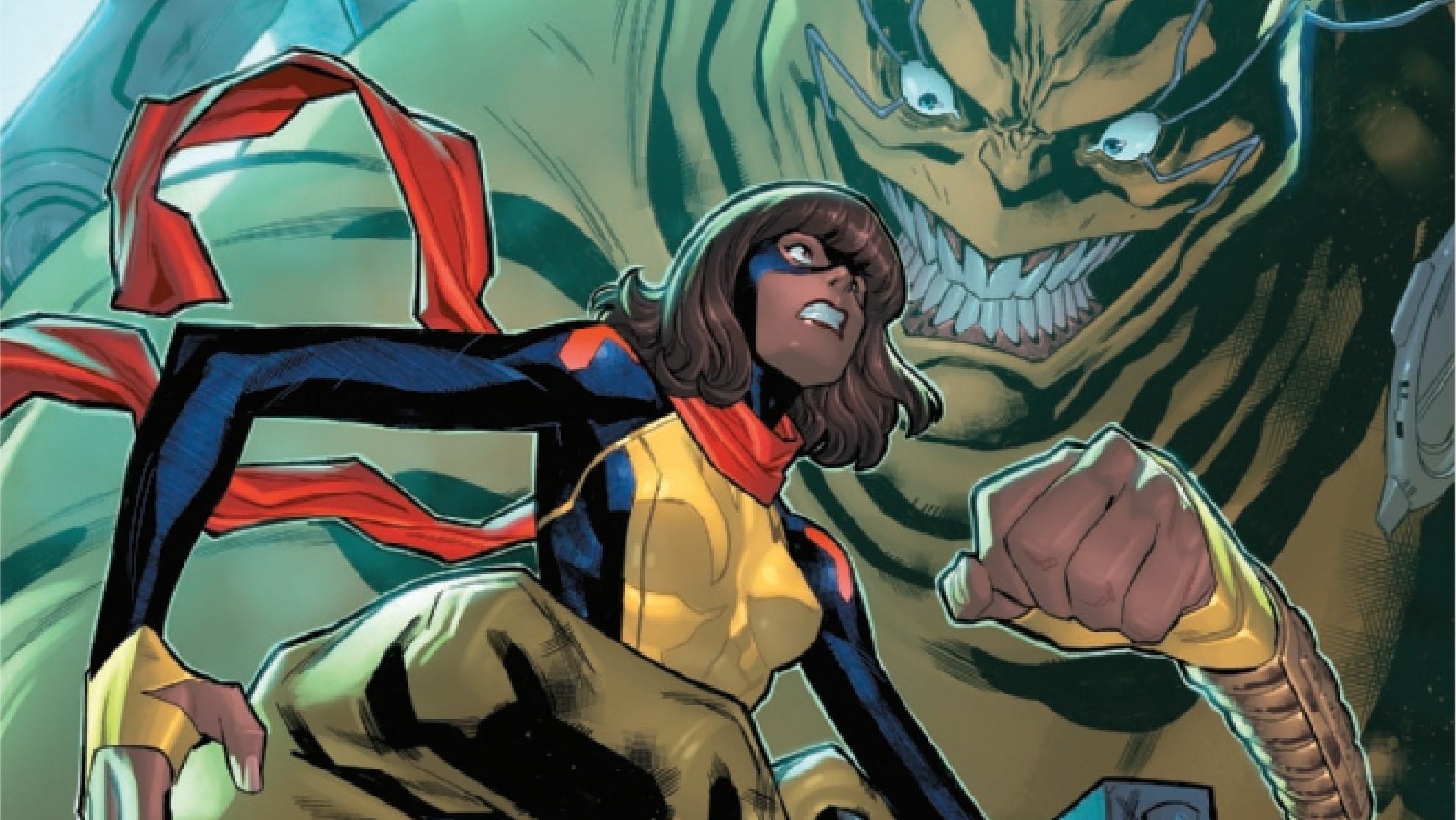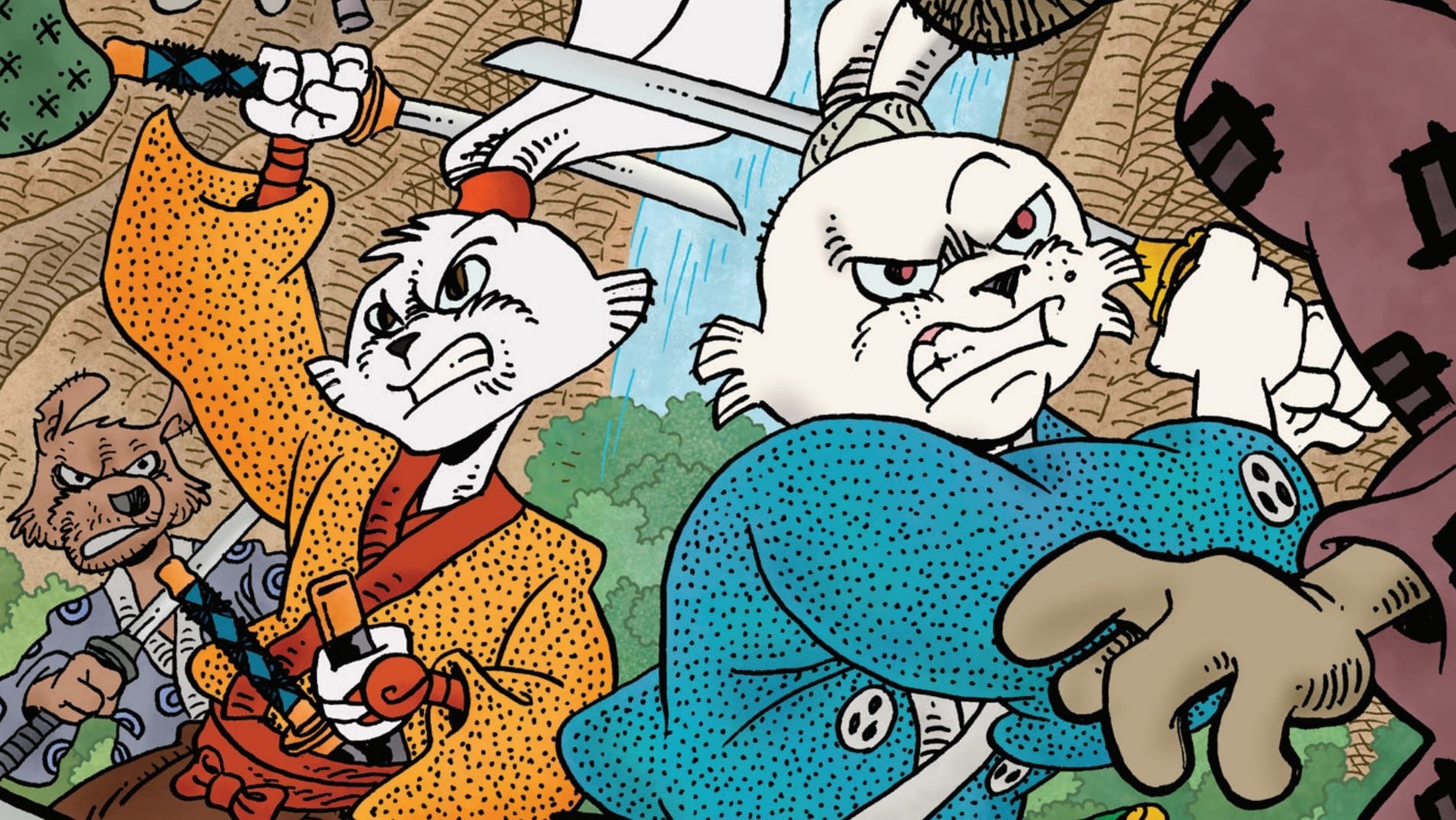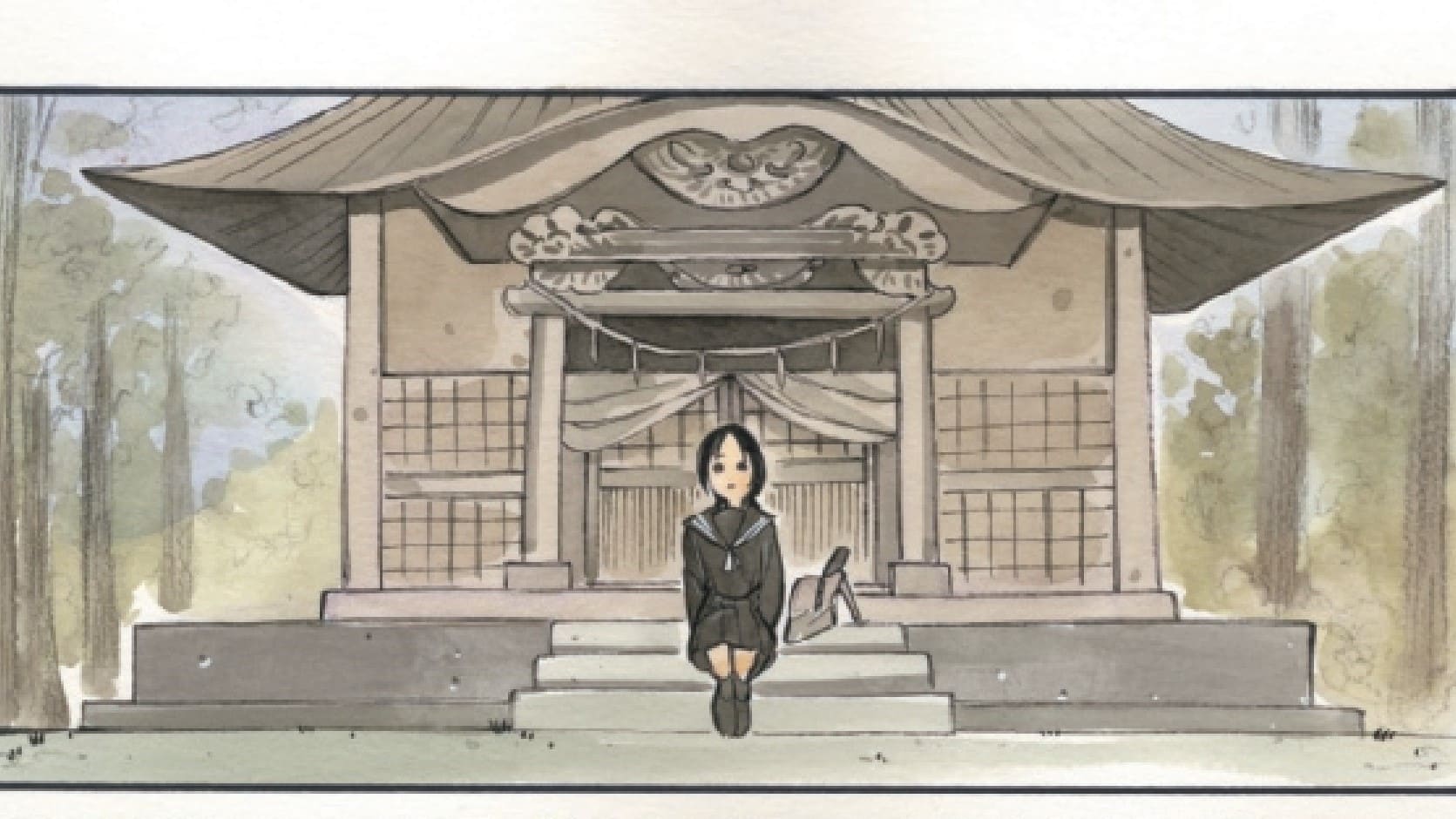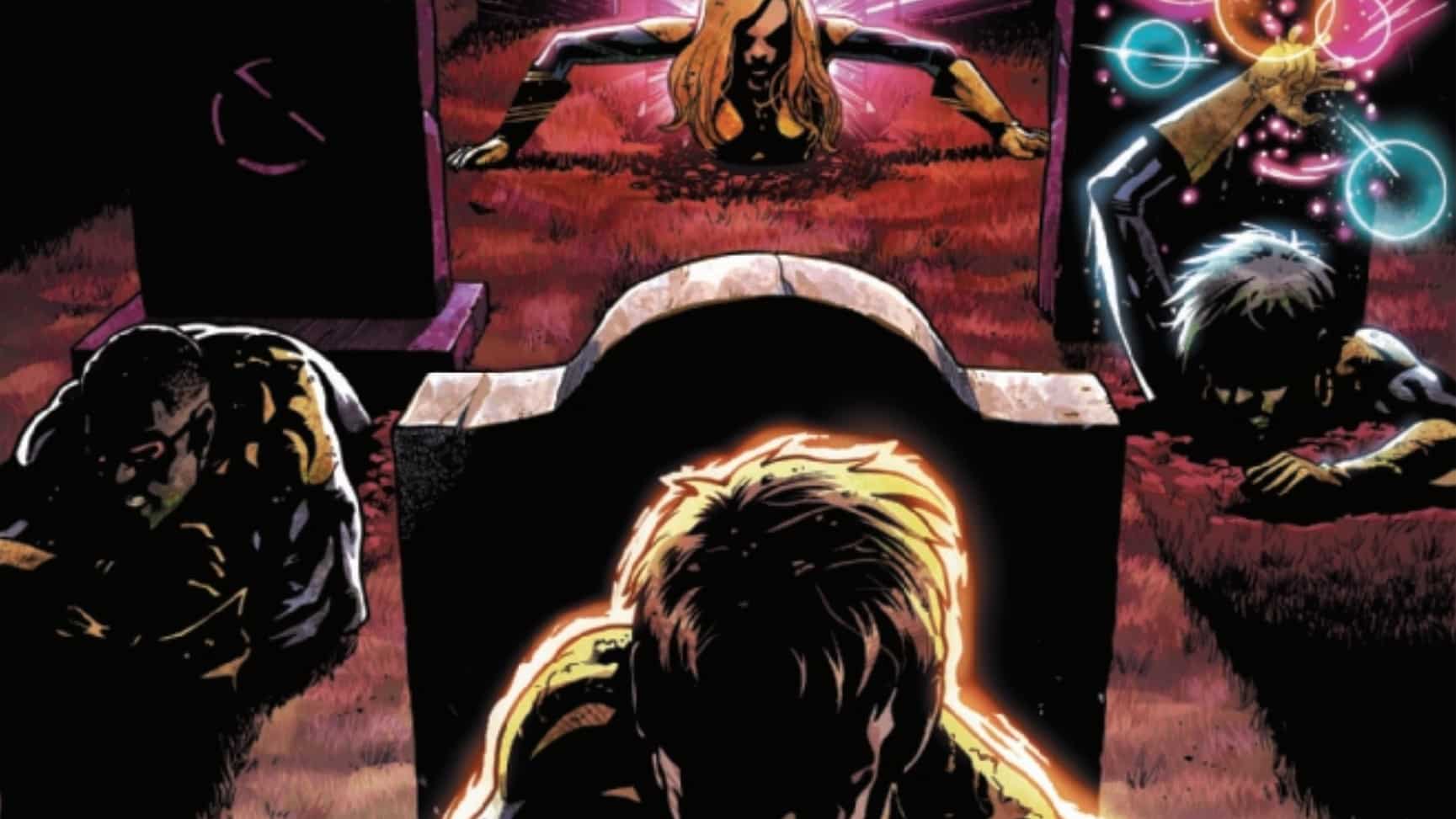With Nina’s secrets revealed, the rest of the Commanders in Crisis need to let off some steam and think about whether they can trust or even work with her again. With the Individuality Act making it into the Senate, the final nail will soon be driven straight through Empathy’s coffin. Can the Commanders resolve this conflict before Executrix enacts her dastardly plan? Let’s find out in Commanders in Crisis #5 from Steve Orlando, Davide Tinto, Francesco Carotenuto and Fabio Amelia.
Cori McCreery: Well, I’m back from getting lost in the multiverse! I sure hope nothing huge got revealed while I was gone, like the fact that Earth-Z is the evil Earth or something. That’d be a shame.
Ari Bard: Well, I hate to burst your bubble, but … that did kinda happen. And the Commanders in Crisis are technically no more. And Nina’s been hiding even more secrets. Things seem to be in a tough spot, to say the least.
Last Time on Commanders In Crisis

CM: Well, clearly I missed some big things, so let’s do a quick recap, huh? I have to say, just like our heroes, I was completely blindsided by the slew of revelations that came at us last issue.
AB: It’s OK, we can just blame it all on Tyler. The nerve of that guy. A quick recap though: Empathy is dead for realsies this time, Nina is from Earth-U while her double from Earth-Z is actually the villain Executrix, she didn’t tell the rest of the team this because Earth-Z is actually an evil Earth and she wanted everyone to believe they had a fighting chance, and the Individuality Act made it into the Senate. Wow, that’s a lot, but I think the core theme here is that secrets and lies only do damage, isn’t that right, Cori?
CM: Hoo boy, that was an awful lot! I mean, it’s certainly not great to keep secrets in this situation, because the stuff being withheld is actually really vital to the mission. How can you expect a team to save the world if they don’t have all the pertinent information about the world they’re trying to save? It’s one of those cases where while the heart was in the right spot, it wasn’t the smart thing to do. And like you said, this didn’t get revealed until Empathy was dead for realsies, so every little bit of understanding the team might have had about it just evaporates. Anything else you want to say about the last issue?
AB: Just that if you thought Tyler was bad, Tyler’s mom is even more disgusting. The way she talks about and disregards her own son is truly repulsive. Talk about having no empathy. Other than that, I think I’m ready to move onto the next issue.
Cascading Consequences

CM: So one of the big themes of this issue is consequences, and how they cascade from every decision that’s been made. There are certainly consequences of Nina’s secret keeping, that she’s only just really feeling a week later. But more importantly, the rippling after effects of Empathy’s death are being felt across the world. What do you think of the bits and pieces we’re seeing of the rest of the world and how it’s persisting without Empathy?
AB: I think that empathy is very difficult to write well, especially when it’s in the form of an ability or personified in any way, but this issue made me realize that lack of empathy can be just as difficult. To me, the world mostly seems to have less impulse control and less regard for consequences, which isn’t quite the same as a lack of empathy. I think we’re just supposed to assume that people are making all of these selfish and rash decisions because of a lack of regard for other people, which is fair but not very nuanced. I think the greatest symptom is probably each member of the Commanders simply coping with this news by doing whatever feels good for them, and not making an attempt to see where others might be coming from, but even that feels rather lackluster. How about you, Cori? Did you feel empathy’s death reverberate through the pages?
CM: I most certainly felt it on the opening pages. I think that’s the place in the book that it was handled the best, with the ambulance driver who refused to get off his break to go save people. Otherwise, I think you nail it pretty spot on, in that a lot of the behavior felt more impulsive than unempathetic. But I do certainly want to talk about the coping mechanisms of the heroes, and especially the two that seem to have found … shall we say … deeper connection.
AB: You’re right. That moment with the ambulance driver really shined through as more concrete impact. Our heroes all have different ways of dealing with the fallout of Nina’s revelations and the death of Empathy, and we’ll get to Seer and Sawbones soon, but I want to start with Nina, who finds herself taking a rather cowardly position during this issue. She reaches out to her comrades via a group chat and doesn’t actually apologize in her message, instead choosing to get it all out there in hopes that the rest of the heroes will simply move on and rejoin her side. I think it’s safe to say she hasn’t put herself in the most sympathetic situation, wouldn’t you agree?
CM: God, what spinelessness. You screwed up, just own up to it. And certainly, revealing that you were keeping even more secrets is going to help the matter, clearly what harm could that possibly do? It’s just terribly craven, especially not even trying to do it in person. I don’t blame everyone but Sawbones for ignoring her. As to the rest of our heroes, two of them spend their week by helping how they can, but two of them find another use of their downtime in addition. Shall we say that things get a little steamy between Seer and Sawbones? And by a little, I mean a LOT, as this is an Image book and doesn’t have to worry about Warner Bros. playing hide the sausage after the issue drops.
AB: Definitely. It felt like the creative team may have wanted to let off some steam as well, unburdened by the restraints of corporate comics, and they sure succeeded. Considering they were together when Nina sent the first message out as well, I think it’s unclear how new this development is, but I can definitely appreciate Seer’s underrated sentiment of, why not use your godlike superpowers to have some incomprehensibly mind-blowing sex, you know? The thing this scene, the issue and the series does best is illustrate all of the things that you can do even within the box of the “traditional superhero comic” but still outside corporate comics. It’s not like this scene adds some profound layer, but it doesn’t have to and it still illustrates some deeply human coping mechanisms. In a world where people are losing their emotional connection to others and having to try harder to feel good, it makes sense that many would turn to physical pleasure and connection.
CM: Also Tinto’s art (throughout the issue, but for this scene in particular) was just phenomenal. He really captured the heat of the moment, and even the afterglow of the event, no pun intended. Another part where he just destroyed it this issue was the sequence with Prizefighter, who is coping with the news in his own way.
Doing What They Can

AB: Tinto does do a great job in that scene, especially when showing the texture of the reporter’s video camera right before Prizefighter relieves some stress of his own, or at least attempts to by punching things only to realize that the villain here can’t actually be taken down that way. The Fatalgorithm, a sentient program that was created to turn headlines into scripts but made its own crime plots come to life, is not exactly something you can punch. It is, however, a great example of another innovative idea that this creative team includes all throughout each issue. There’s definitely some biting commentary on the state of modern journalism, the lack of privacy given to public figures and the natural desire to avoid commitment, and it seems like Prizefighter left this scene under a little more stress than when he entered it. What’d you think about Prizefighter’s coping mechanism, and how did the Originator fair?
CM: I think that he learns pretty quickly that as cathartic as it is, and as good as it may feel — punching things is not actually therapy. Like sure, it probably felt good, but it did nothing to actually help the situation. Originator’s coping mechanism is similar, but different, in that she’s still responding to threats, but she’s trying to do speed runs of it. I appreciated the sass of using the number 52 for her sequence, too. What did you think of her time trial?
AB: I mean if anyone’s coping mechanism took the empathy out of saving lives, it was Originator’s. Speedrunning saving the day is … something else, and everything she did was cold and calculated. The kids did not seem reassured as they ran out of the classroom, Originator seemed to enjoy taking down a Social Caller, and her speech seemed more like a one-sided lecture demonstrating how the Social Callers manipulate people without necessarily recognizing that her words can do the same thing, and she’s not the only one with an agenda. After their intimate session, Sawbones travels to The Hindsight to find out Joan’s and leaves with an agenda of his own fueled by spite, a powerful motivator. What’d you think about this encounter?
CM: I really like the idea of a prison that just keeps super criminals a day in the past so that escape attempts are almost useless. And prison has certainly already taken quite the toll on Joan, as she’s already hard around the edges in her new environs. And in his conversation with her we can certainly see his own lack of Empathy. He’s not the only one that had his own things to do after the intimate encounter, though. What’d you think of the other part of Seer’s story?
AB: Seer might be approaching this in the healthiest way? After all, she is essentially seeking counseling and still valuing others’ opinions as we get to learn more about the history of superheroes on this Earth. Perhaps her godlike powers left her with a little bit of empathy? I really appreciated all of the lessons and further queer representation that the tale of Madam Fury and Hack had to offer here, but even more than that, I really like that Seer stayed in touch with the two women looking for their grandson and became friends with them. It leaves plenty of hope for genuine connection and empathy that still remains and was a really wholesome moment overall. Anything else to add as the Executrix enacts phase two of her plan and Frontier comes face to face with a hero we haven’t met yet?
CM: I certainly did enjoy the history of Fury and Hack, and especially the revelation that both of the first heroes of this world were queer. And like you said, certainly Seer’s interactions throughout the issue give us some hope that somewhere Empathy might still be gasping for air. And yes, the two versions of Nina leave us with good mysteries going into the midway point of the series. I for one am very excited to learn about how Thunder Woman is connected to Empathy.
Originator’s vocab list
- Chronodilativepsychodeevolution
- Feminoveloinspirationism
- Ideacorporevivexposition
- Empathorecidivism
- Novemonanism
- Radiocorporeasapientia

